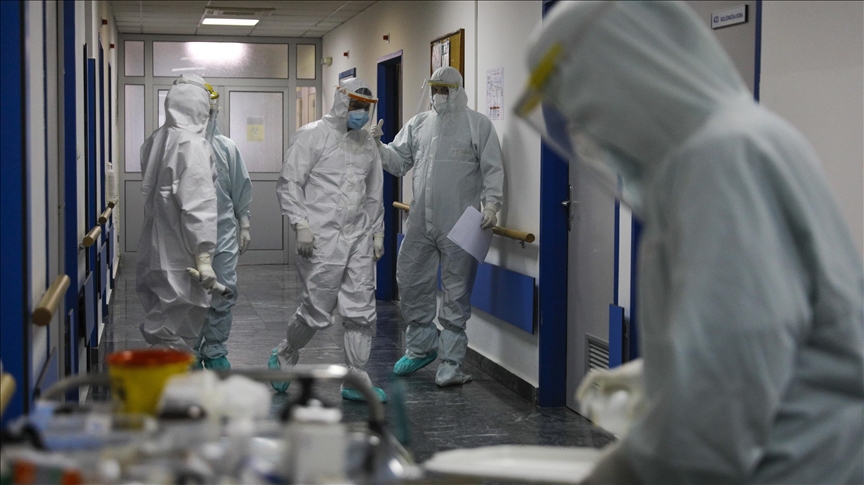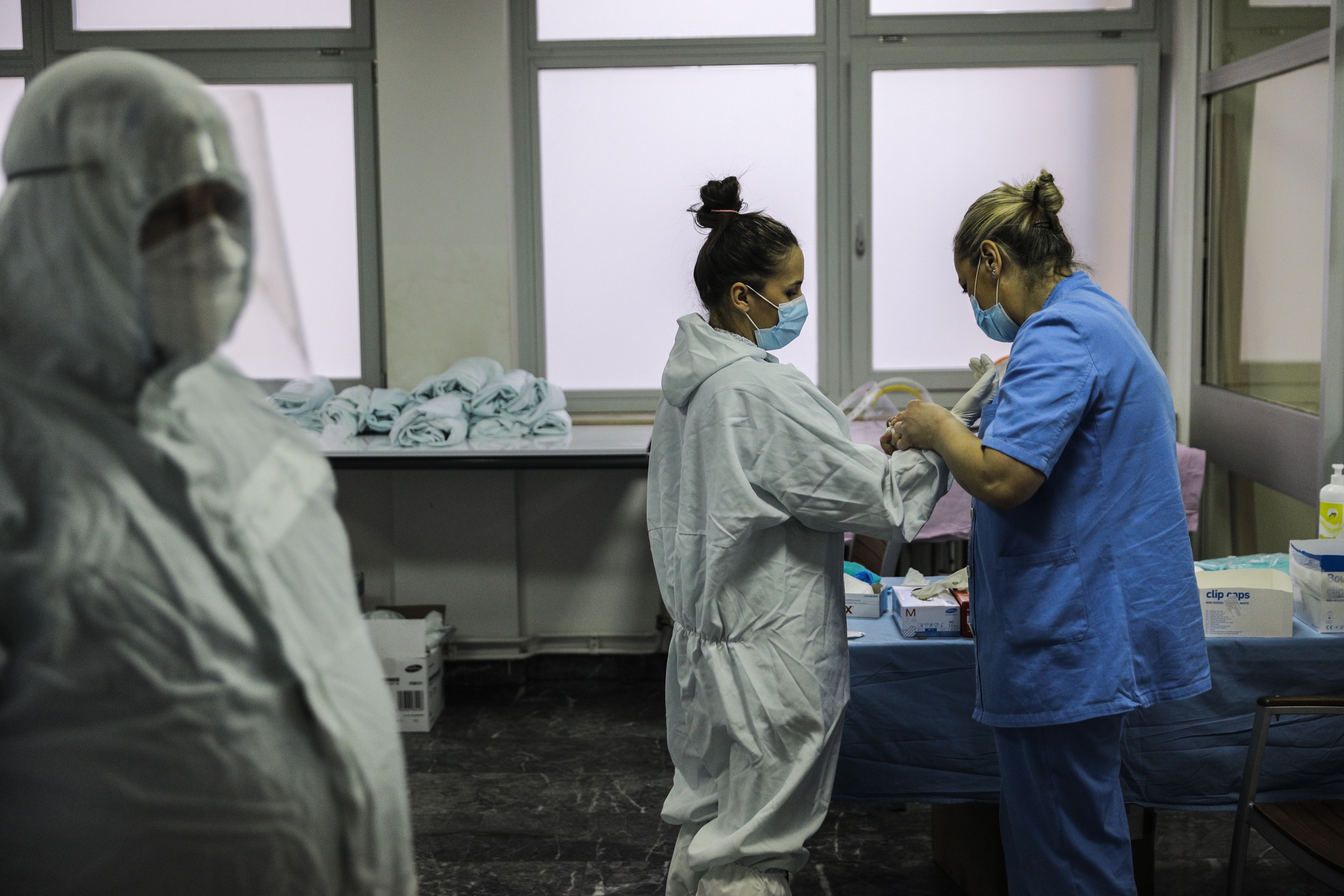Bosnia and Herzegovina was able to struggle in the war but it is harder to fight the COVID-19 pandemic today, said a deputy director of a hospital in the capital Sarajevo, referring to the 1992-1995 Bosnian War.
Turkey's premier news outlet Anadolu Agency visited Dr. Abdulah Nakas Hospital in Sarajevo to witness the laborious struggle of doctors and other health care professionals against the pandemic.
Anadolu Agency's team visited the medical staff in the COVID-19 department of the hospital and observed the strict measures and treatment processes of patients on-site.
Health care professionals in the hospital are treating nearly 100 patients while also providing them with psychological support.
Dr. Ismet Gavrankapetanovic, the deputy director of the hospital which is one of the largest in Bosnia, said there is fear and panic in the city due to the outbreak.
"We are also afraid. After all, none of us is a superhero," said Gavrankapetanovic, adding that they are trying to keep calm.
Recalling that he worked as a doctor during the Bosnian War in 1992-1995, Gavrankapetanovic said they were able to prepare for war at the time but today it is hard to prepare for an invisible enemy.
"This time, the situation is very different. We are fighting against an invisible enemy. There is no rule in this war and we are all in danger," he said.
While the tough fight against the novel coronavirus continues in the country, the devoted work of the health care personnel at the forefront is also appreciated.
Ednan Drljevic, a specialist of infectious diseases and also responsible for the COVID-19 department of the hospital, said they are trying to help patients both physically and psychologically.
"Physiotherapists visit patients every day and help them do breathing exercises," Drjevoc stated.
- At least as many vaccines should be provided as the population of the country because each person requires two doses of vaccine. This will be enough for [only] half the population. We should do this if we want to survive the pandemic. But for now, Bosnia and Herzegovina has only ordered enough vaccines for 20% of the population - said Drljevic.
Adding that the vaccine will arrive in Bosnia and Herzegovina in spring, Drljevic said that it would be too late for health care professionals.
Zoran Gulin, a 72-year-old COVID-19 patient, has been under treatment in the hospital for 14 days.
Gulin said she had only a high fever for the first 10 days.
- My condition got worse. When I was taken to the hospital, I learned that I had pneumonia due to COVID-19. Thanks to the response of the doctors here, I was saved - said Gulin.
Most of the patients receiving treatment in the hospital are over the age of 50 and the patients between the ages of 50 and 65 are at most risk.
According to the Health Ministry of Bosnia, as many as 99,543 people have been infected, while 3,250 have died of the virus that first emerged in China last December.


